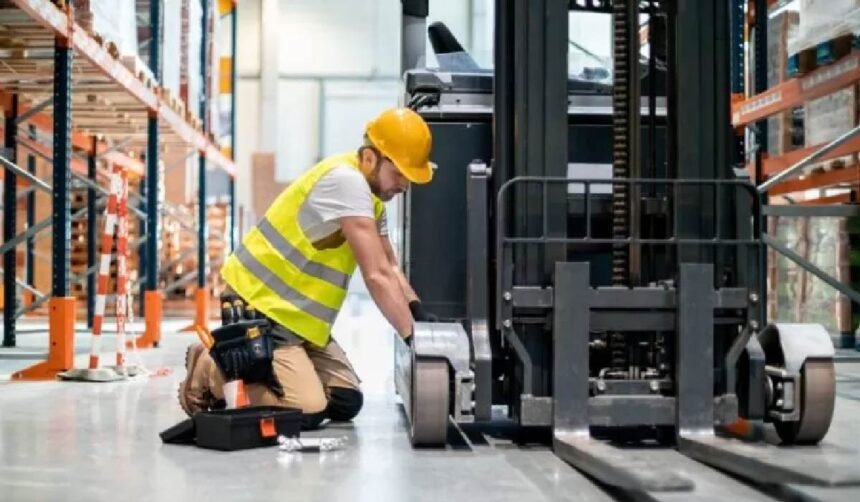In today’s fast-moving and highly competitive industrial landscape, efficiency, scalability, and cost-effectiveness are more important than ever. Companies across logistics, construction, warehousing, and manufacturing sectors are continually looking for ways to streamline operations and manage resources more intelligently. Among the many tools that keep these industries running, forklifts are essential. But instead of committing to a full purchase, more businesses are turning to forklift rentals to meet their needs—efficiently, flexibly, and affordably.
This article explores why forklift rentals are becoming the go-to solution for companies of all sizes, what to consider when renting, and how this model can improve your overall business agility and performance.
Why Renting Beats Buying in Many Cases
When evaluating whether to buy or rent a forklift, the first consideration is typically cost. Purchasing a new forklift can be a significant investment, especially for businesses that need more than one type of lift truck. While owning a forklift might make sense for some companies with constant use and in-house maintenance capabilities, many businesses find themselves burdened with maintenance costs, storage problems, and depreciation.
Forklift rentals, on the other hand, offer several financial and operational advantages:
- Lower upfront investment: You avoid the capital expenditure of purchasing new equipment.
- Scalable usage: Rent only when you need it, reducing idle equipment time.
- Access to a broader range of equipment: Rentals allow you to choose specific types for specific jobs.
- No long-term commitment: If your needs change, you’re not stuck with equipment you no longer use.
For many organizations, these benefits make renting a forklift the smarter choice.
Flexibility Across Industries
Every industry has its own unique demands when it comes to material handling. Whether it’s a busy warehouse preparing for seasonal stock surges or a construction site dealing with ever-changing terrain, having access to the right type of forklift can make or break productivity.
Forklift rentals give companies the ability to select:
- Electric forklifts for indoor use.
- Rough terrain forklifts for construction and outdoor environments.
- Narrow aisle forklifts for compact warehouse operations.
- High-capacity forklifts for heavy industrial lifting.
This kind of flexibility means that businesses are not limited by the equipment they own, but can adjust based on the current demands of their projects or operations.
If your business experiences peaks in demand during certain times of the year, or if you take on projects with varying requirements, forklift rentals allow you to scale your operations up or down without the risk of overinvestment.
Minimizing Maintenance and Downtime
One of the most overlooked advantages of forklift rentals is the reduction in downtime due to maintenance and repairs. Owning a forklift comes with the responsibility of routine maintenance, which can be costly and time-consuming. It also requires skilled technicians and spare parts inventory.
With forklift rentals:
- Maintenance is typically handled by the rental provider, often at no extra cost.
- Breakdowns are resolved faster, with the option of receiving a replacement forklift.
- There’s no need to maintain an internal team for heavy equipment servicing.
This results in increased uptime and more reliable operations, especially in mission-critical environments like shipping docks and distribution centers.
Moreover, modern rental providers ensure their fleets are well-maintained, so you’re less likely to experience unexpected failures. You’re also more likely to receive newer models that meet current safety and performance standards.
Streamlining Capital Allocation
Businesses must always evaluate how they allocate capital. Purchasing expensive machinery ties up funds that could otherwise be used for growth, innovation, or improving customer service. Forklift rentals provide an operational expense model, freeing up capital that can be used elsewhere.
From an accounting perspective, renting equipment can:
- Improve your cash flow by reducing large capital outlays.
- Simplify budgeting, as monthly rental costs are predictable.
- Enhance your balance sheet, especially for companies trying to reduce fixed asset totals.
In addition, avoiding depreciation costs helps maintain better financial metrics over time. This financial flexibility is especially helpful for startups and small to medium enterprises, where conserving cash and staying lean is often a top priority.
Keeping Up with Technology and Compliance
Technology in material handling is evolving rapidly, with new forklifts offering enhanced safety features, better ergonomics, and environmentally friendly power options. However, purchasing new equipment every few years to stay updated is rarely practical for most businesses.
Forklift rentals solve this issue by:
- Giving you access to the latest models with up-to-date features.
- Ensuring compliance with changing safety regulations.
- Offering eco-friendly options, such as electric forklifts, to meet sustainability goals.
This not only keeps your team safer but can also improve operational efficiency and reduce energy costs.
Furthermore, renting from a reputable provider ensures that each forklift meets current inspection and certification requirements. This reduces the risk of fines, legal issues, or workplace accidents due to outdated equipment.
Customizable Rental Plans
Another major benefit of forklift rentals is the availability of customizable plans that suit specific business requirements. Whether you need a forklift for a day, a week, a month, or even long-term, rental services can be tailored accordingly.
Short-Term Rentals
Perfect for:
- Temporary warehouse expansions
- Seasonal inventory increases
- Special events or trade shows
- Emergency equipment replacement
Long-Term Rentals
Ideal for:
- Businesses that want to avoid equipment ownership.
- Companies needing continuous support with flexible terms.
- Projects with a defined but extended timeframe.
Having this level of customization allows businesses to choose what’s best for their operations at any given moment, without unnecessary expenses or logistical challenges.
Supporting Business Continuity
Unplanned disruptions in equipment availability can bring operations to a halt. Whether it’s due to mechanical failure or unexpected demand, downtime is costly. Forklift rentals offer a strategic backup solution.
For example, if your owned forklift needs repair, a rental can fill the gap almost immediately. Many providers offer same-day delivery, ensuring your operations continue without disruption. This kind of support is critical in industries where timing and productivity are everything.
Moreover, businesses that rely on forklift rentals can avoid lengthy procurement processes when a need arises suddenly. Instead of waiting for purchase approvals or inventory restocks, they can get the equipment they need on-demand.
Making the Most of Your Forklift Rentals
To maximize the value of your rental, here are a few best practices:
- Evaluate your needs in advance – Know the type, weight capacity, and lift height required for your tasks.
- Check the rental agreement – Understand what’s included, from maintenance to operator training options.
- Inspect equipment upon delivery – Ensure it’s in proper working condition and matches your requirements.
- Ensure operator certification – Make sure your team is trained and certified to use the forklift model you rent.
- Plan for flexibility – Choose a provider who offers upgrade/downgrade options as needs evolve.
If you’re considering a more flexible solution for your operations, check out reputable providers offering forklift rentals with comprehensive support and scalable options.
Conclusion
In a business environment that demands both precision and adaptability, forklift rentals offer a practical, cost-effective alternative to equipment ownership. From reduced capital investment and maintenance responsibilities to increased operational flexibility and access to modern technology, renting forklifts empowers companies to stay lean, efficient, and responsive.
Whether you’re managing a growing warehouse, tackling a construction project, or preparing for a seasonal surge in demand, the advantages of forklift rentals are clear. They not only help control costs but also support scalability, safety, and reliability—three pillars of long-term success in any industry.
Make the smart move today and explore how forklift rentals can support your business goals with greater efficiency and less risk.









